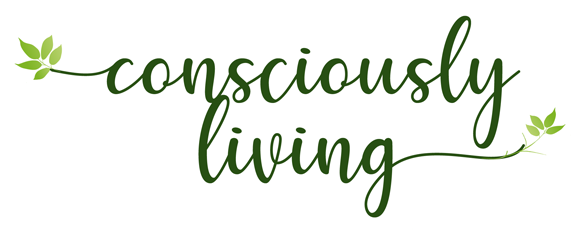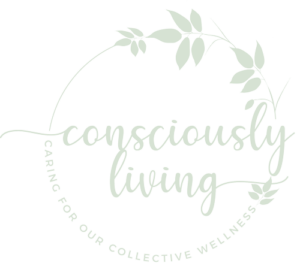Fog & Moon | linens: we are a family business based in Wellington city.
When tūpuna (ancestors) call, every cell in the body responds…
Fog & Moon | Linens is a concept born from research; as a practicing artist for over 15 years my key focus has been developing the Māori concept Kaitiakitanga or stewardship and landscape from a Māori perspective within my artwork. After completing my Master’s thesis making artwork and telling the stories of the landscape within the gallery environment was no longer enough for me. As evidence of the pollution of our waterways and degradation of the whenua land increased I felt an incredible urge to find a way to embody the idea of Kaitiaki caretaker in a practical way. I knew I had to do something, I knew why I wanted to do it – but what, where and how do I start? My mother told me to look inwards to find the answers to my questions. My great grandmothers rongoa recipes were the perfect starting point to direct my research and I was amazed how quickly the pathway unfolded, once I came to this realisation.

The Research Project.
We are researching and developing growing 100% pure linen in New Zealand. Natural, organic and sustainably made from New Zealand native flax fibres and traditional flax linen (linum usitastissimum) plant variety. The goal is to include sustainable processing methods that will feed back into the growing & harvesting environment, creating a reciprocal cyclical whole system with nature.
Globally less than 1% of linen is grown organically. Linen flax requires no added chemicals and less water than cotton. It is the most environmentally friendly textile however because natural materials are labour intensive the production of non-organic linen will often involve going through the following processes: Seeds are pre-treated with fungicide. After planting, small sprouts are sprayed with pesticide. Petroleum-based fertilisers are applied. Prior to harvesting, two different herbicides are sprayed on the field. If needed, more pesticide and fungicide may be applied. Later, when conventional food crops are planted in the same soil, a different roster of chemicals will be added.
Linen flax grows annually in the summer months which leaves room for the rotation of other crops. We have been studying organic growing practices in Europe where the crops are rotated according to the nutrients they leave or take from the ground.
We hope to start growing next year and as far as the research goes it is very early days. The processing of the plant materials will be the greatest challenge as it is extremely labour intensive. We are also aware that there are others in the country who are growing organic and sustainable plants for textiles and manufacturing of eco building supplies. However, currently, there is nowhere to process the material in New Zealand. This is where we would like to see change and we are working on connecting with others who are interested in whole system theory and regenerative growing practices and applications. Eventually, we would like this to become a social enterprise and a business model that will extend to our Iwi in the Far North.

Fog & Moon | Linens.
Fog & Moon | Linens was created to illustrate in a practical way the beauty of the material and create an income to fund the research. The history of linen and humanity is centuries old, the oldest material discovered dating back to the Romans and Egypt. I wanted to acknowledge this history by making designs that would emphasise the pure simplicity, durability and practicality of the raw material, keeping completely plant based with no other materials included in the products.
It was also important to follow through with the zero-waste concept in considering how we would package the items. So, we included the flax boxes and hand-drawn linen labels, coming from a visual art background this is the part of the work that I really enjoy incorporating all the elements and finding interesting solutions.


During my independent research, I found the solutions based theory of regeneration. This involves looking at environmental solutions, rather than the problems, by investigating the history of a place and finding the solutions within each landscape. Each place is as different as the individuals that inhabit them so the solution is unique for each situation. This constant evolution of learning has also helped me to evolve my work in the same way. As a Māori artist, designer and kaitiaki, I feel like I am working in collaboration with plants. I visualise the flow of their history and mine extending into the landscape, weaving our future together. Along with the stories of my tūpuna ancestors as an intrinsic part of my fibre, intricately woven into my genes, like the warp and weft of textiles.

We would like to see the full production of organic and sustainable plant based textiles and materials within New Zealand. If you are interested in keeping up to date with our journey or if our story speaks to you feel free to connect with us, we would love to hear from you.
Nga mihi,
Tanya
Fog & Moon | Linens
CONNECT with Fog & Moon | Linens
More Information on linen.

WHY DO WE LOVE LINEN?
LET US COUNT THE WAYS…
- Linen is made from all natural European flax plant fibres.
- 100 percent pure linen is regarded as a high-quality material internationally.
- Linen is durable.
- It is a breathable fibre, so it will keep you cooler in the summer.
- It is cool against the skin – it has been measured that the body temperature of a person wearing linen can be up to 5% cooler.
- Linen has antibacterial properties, which is why it was used in medicine as bandages and as sheets on hospital beds.
- Linen is also hypoallergenic.
- The more linen is washed, the softer and smoother it becomes.
- Linen is capable of absorbing moisture and then quickly yielding it again – so it is great in the kitchen.
- Linen is biodegradable!

Where do we source our linen material & textiles?
We honour our materials and you our customer so you can rest assured we intend our designs to be as transparent as possible. Each Fog & Moon piece will have the linen source identified with its product listing under 3 categories:
- We currently source our linen from the Fabric Store here in Wellington. The Fabric Store has a zero-waste policy and purchases their linen from designers in New Zealand, Australia and the U.S.
- During our research into European linen flax, we have discovered a high quality organic and sustainably grown and processed linen, from 5th Generation Master Fine Linen makers and growers in Belgium.
- Heritage and vintage linens – found, rescued & gifted. It is important to Fog & Moon to follow a zero-waste ethic. We believe this means using linen resources that have a history and have lived a previous life. Some people adore this concept, however, we are also aware that some find this idea somewhat unnerving, fear not – we will give full disclosure. We just cannot stand to see a valuable piece of linen discarded. Our pieces that contain this material will be listed as a heritage or vintage textile linen.
BIO Fog & Moon | Linens

Kia ora my name is Tanya Ruka, I am the founder and creative director of Fog & Moon | Linens. I spent my childhood in Europe away from my culture and the rich heritage of knowledge of my Iwi tribe. Until our return home to New Zealand, my mother was key in growing a connection to and enthusiasm for protecting nature and our environment. She would take me on long walks in nature and tell me stories from ‘back home’. In Aotearoa, the importance of connecting with nature was further cultivated by my grandmother and mother who would take me to grow and gather food including elements of traditional Māori rongoa (medicine). Important information was passed through stories told about tūpuna ancestors long passed. 10 years ago, I was gifted the rongoa recipes of my great grandmother and namesake Te Miringa Te Rorarangi. As a child and young adult, I did not understand or appreciate the significance of our time spent absorbed in nature being taught by the matriarchs of my family. These treasured recipes typed and handwritten are now my daily inspiration.




Danny Sinton
August 7, 2017 at 3:31 amThankyou
Add a comment